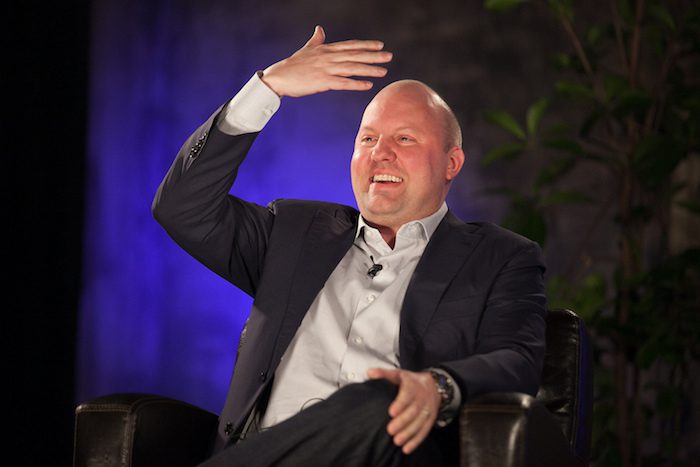
21 is a startup that initially got attention for developing hardware and software to optimize bitcoin mining. But earlier this month, it (pivoted? expanded? diversified?) into providing a sort of paid email service. (This shift was, of course, predicted by the prophets of old.) With 21, you set a price at which people can send you an email and actually get a reply. (The sender is only charged if you respond.)
Last week, Marc Andreessen announced that he was now active on the service and that for $20, you could ask him anything. (He’s donating all payments to Black Girls Code.) Andreessen is, of course, the cofounder of the influential venture capital firm Andreessen Horowitz (an investor in 21, natch); back in the earlier days of the web, he was leader of the team that developed Mosaic, the first significant graphical web browser, and through Netscape the web’s early barefoot king.
<marquee>Click here for a brief personal aside</marquee>
As it happened, I had a question I wanted to ask Andreessen, as well as twenty bucks. About three years ago, he put forth one of his then-characteristic tweetstorms, this one about the state of the news business. Those tweets have since been deleted, but they were captured in blogpost form on the Andreessen Horowitz website — “The Future of the News Business: A Monumental Twitter Stream All in One Place.” Give it a read for yourself, but it was most notable for its outsized optimism:
I am more bullish about the future of the news industry over the next 20 years than almost anyone I know. You are going to see it grow 10X to 100X from where it is today. That is my starting point for any discussion about the future of journalism.
While there are very many things in Andreessen’s tweetstorm I’d agree with (and I think he does a good job of highlighting some of the right players leading the way), I confess I’ve always thought that there was a little too much Valley exuberance in his vision. The unparalleled growth of “news” and “media,” it’s increasingly clear, doesn’t line up with a 10× or 100× expansion of the news industry. There are plenty of good businesses to be built, but the number of [companies|outlets|journalists] will be both significantly smaller and warped in ways that don’t line up with the information needs of a democratic society. And in the three years since publication, it’s become more obvious how ruthlessly efficient the Facebook/Google duopoly has become at siphoning off value previously captured by publishers. (Andreessen sits on Facebook’s board.)
Anyway, I decided to skip two kale Caesar salads at Sweetgreen and sent Andreessen a question. He replied! And thus we have the shortest Q&A in Nieman Lab history to date. Enjoy.